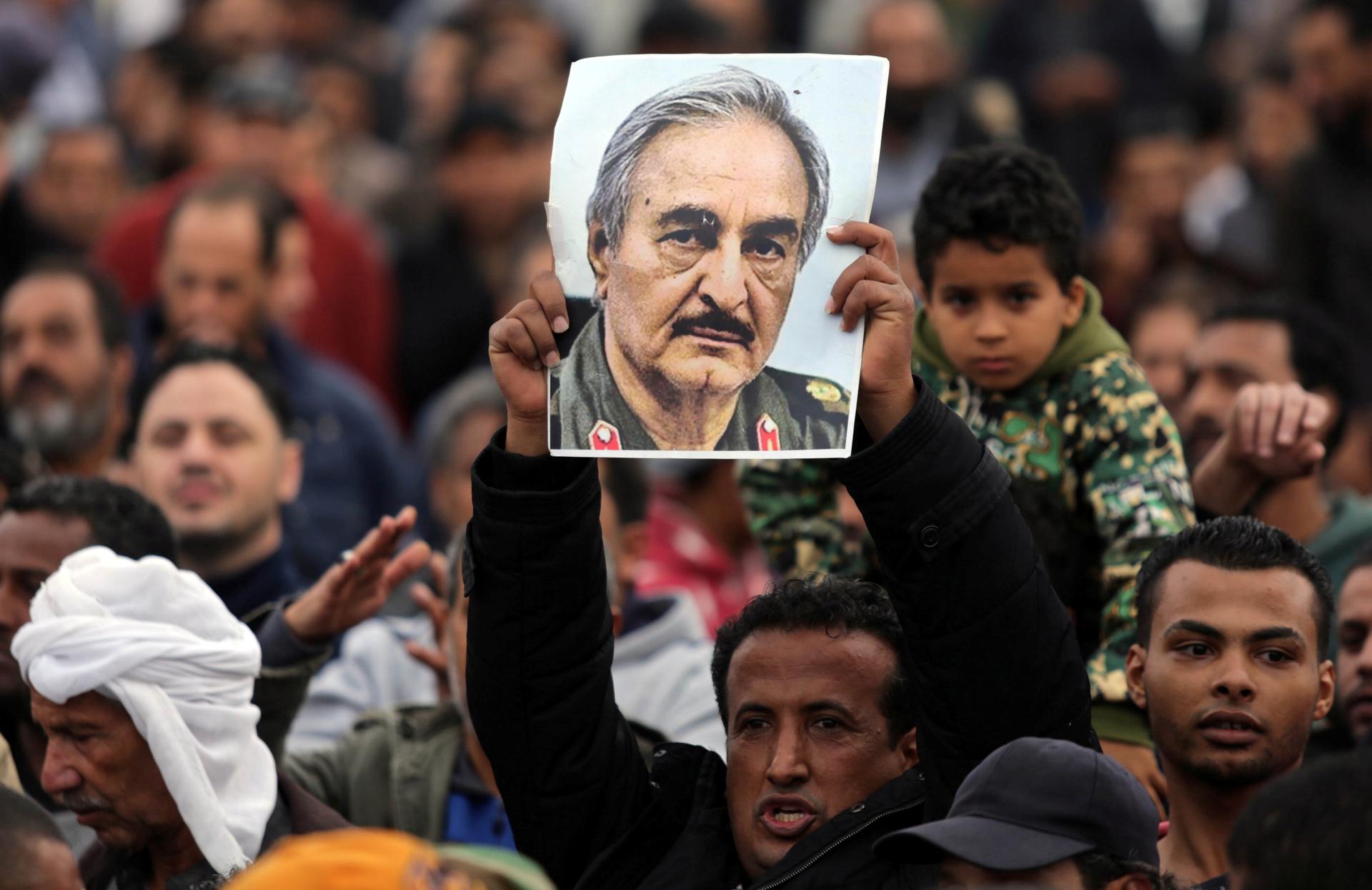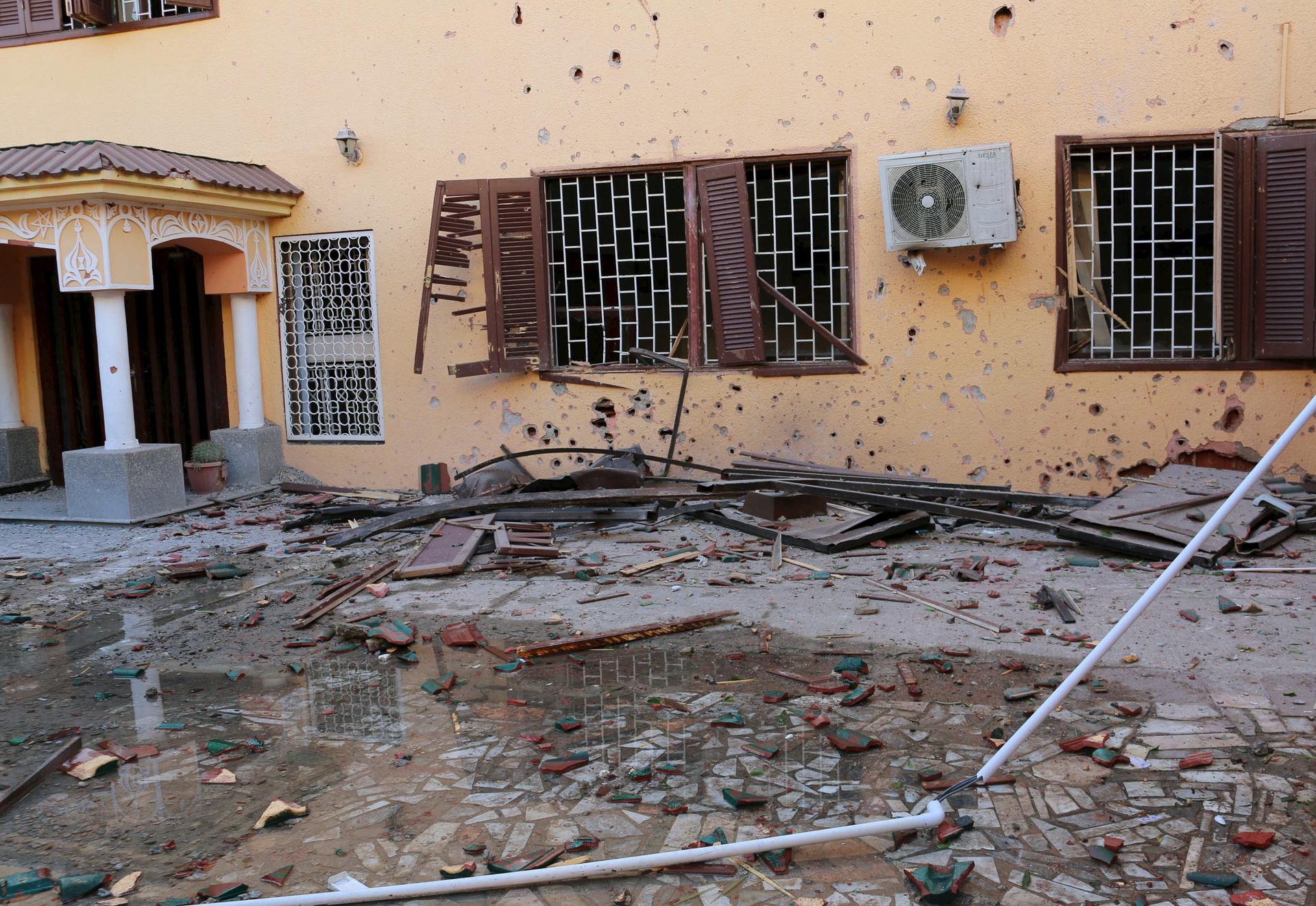Libyan civil war
Libyan warlord took a twisted path to Tripoli
Gen. Khalifa Haftar helped put Muammar Gaddafi in power in 1969, spent decades in the US, and then returned for the dictator’s overthrow in 2011. Now, at 75, he’s challenging the internationally recognized Government of National Accord of Libya in a battle for Tripoli.
A Greek ferry is home to members of Libya’s parliament and, more importantly, the best frappuccinos in town
The hottest drink in Tobruk, a town in eastern Libya, isn’t at a bar or even a coffeehouse. It’s aboard the Greek ferry that’s the temporary home of Libya’s parliament, where the baristas are slinging high-quality frappuccinos to lawmakers, their families and even curious locals.
Tripoli’s airport has become ground zero for military clashes in Libya
The crisis in Libya is deepening after a powerful militia opposed to the country’s current government took control of the capital’s airport a week ago. Libya’s House of Representatives says Tripoli as a whole has fallen in the hands of what they call “terrorists.” However, the militias that overran the capital were former rebel groups who have been on government payroll since the end of the revolution.
Three years after its civil war, Libya is on the brink of another
Three years after the revolution that overthrew Moammar Gaddafi, Libya faces an even worse crisis that threatens to destabilize the country and region. The US doesn’t want to intervene, but fighting between Islamists and former Gaddafi loyalists has already dragged in other countries.
Here’s why this week’s US commando raid in Benghazi has angered so many Libyans
Nearly two years after the killing of US Ambassador Chris Stevens and three other Americans in Libya, Delta Force commandos and FBI agents have seized the man suspected of leading the attack on the US mission in Benghazi. But Alaeddin Muntasser, a businessman based in Tripoli, says Libya is still gripped by lawlessness.Nearly two years after the killing of US Ambassador Chris Stevens and three other Americans in Libya, Delta Force commandos and FBI agents have seized the man suspected of leading the attack on the US mission in Benghazi. But Alaeddin Muntasser, a businessman based in Tripoli, says Libya is still gripped by lawlessness.


